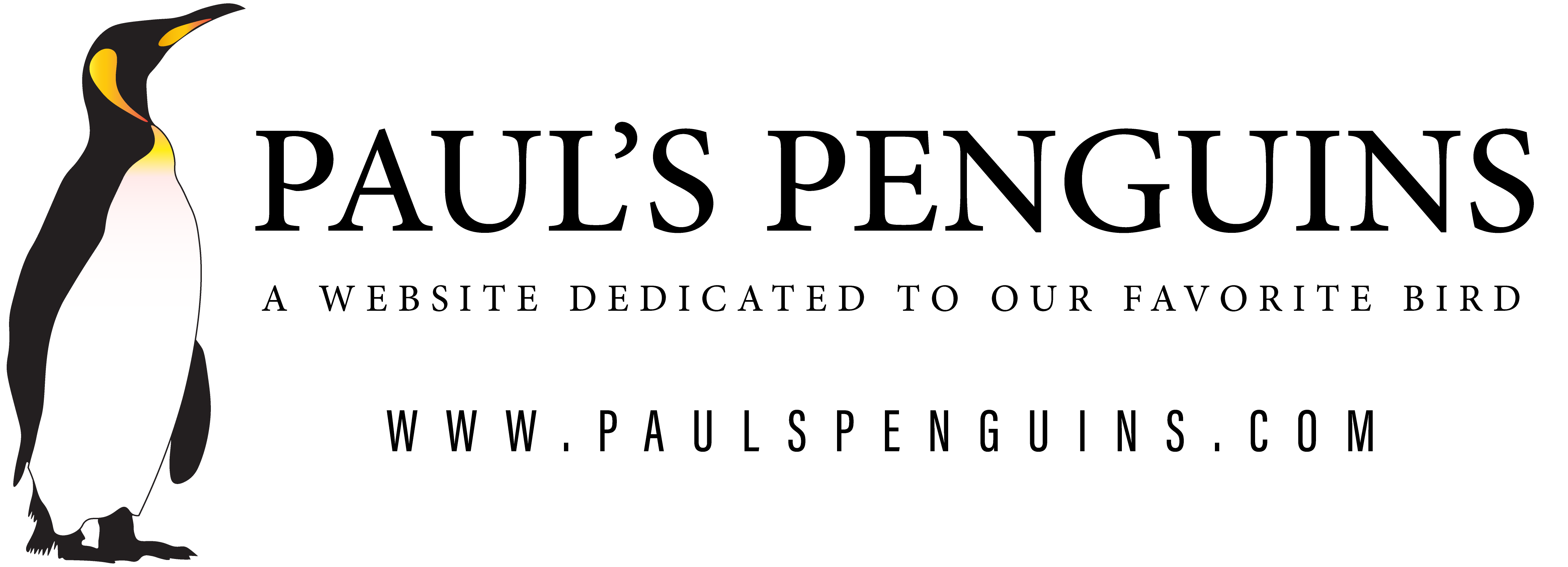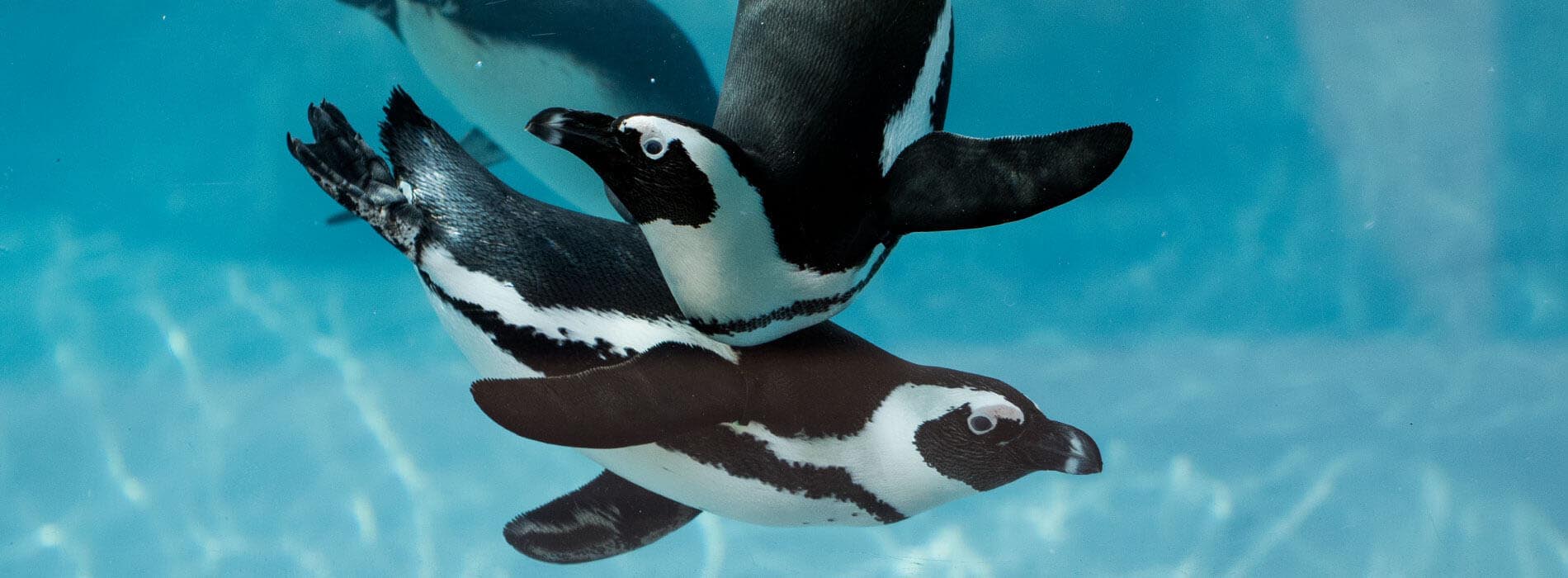Currently all 18 species of penguins are legally protected from hunting and egg collecting.
The Antarctic Treaty was signed by 12 nations in 1959 and reauthorized in 1991 to protect Antarctica and preserve its living resources. The Treaty makes it illegal to harm, or in any way interfere with, a penguin or its eggs. Every penguin specimen collected with a permit must be approved by and reported to the Scientific Committee for Antarctic Research (SCAR).

The Convention on International Trade in Endangered Species of Wild Fauna and Flora (CITES) is an international treaty developed in 1973 to regulate trade in certain wildlife species, including penguins. CITES categorizes various animals according to their current status.
- Appendix I lists species that are endangered, or in danger of extinction. The Humboldt penguin is listed on CITES Appendix I.
- Appendix II lists species that are threatened, or likely to become endangered. The African penguin is listed on CITES Appendix II.
IUCN/The World Conservation Union is a worldwide conservation organization. This organization links together government agencies, non-government agencies, and independent states to encourage a worldwide approach to conservation. See Appendix for listings for each species.

The Endangered Species Act of 1973 (ESA) is administered by the U.S. Departments of Interior and Commerce. It seeks to stop the extinction of wild animals and plants in the United States, other nations, and at sea.
- Under the ESA, the African and Galàpagos penguins are listed as “endangered” (species faces a very high risk of extinction.)
- The erect crested, fiordland crested, Humboldt, yellow-eyed, and little (white-flippered form) penguins are listed as “threatened” (species is likely to become an endangered species within the foreseeable future.)

Wildlife Refuges
Protection of habitat began in the early 1900s. In 1919 the Tasmanian government stopped all exploitation of penguins on Macquarie Island and proclaimed the island a sanctuary. In 1997, Macquerie island was designated as a World Heritage site by the United Nations Educational, Scientific and Cultural Organization (UNESCO.)
In 1924 the French declared the Kerguelen Islands off Antarctica a National Park.
Conservation Management Plan
The Conservation Assessment and Management Plan (CAMP) is an assessment tool to evaluate the status of various animals and to determine conservation priorities. CAMP was developed by the Conservation Breeding Specialist Group (CBSG) of the Species Survival Commission of the International Union for the Conservation of Nature and Natural Resources (IUCN)/The World Conservation Union.
In September of 2004, the Fifth International Penguin Conference was held in Ushuaia, Argentina. Following the conference, a two-day collaborative workshop sponsored by SeaWorld and the New England Aquarium reviewed the 2004 IUCN penguin Red List fact sheets, updated the 1998 CAMP for all species of penguins, and looked at penguin conservation priorities and future initiatives.

Zoological Parks
Most people do not have the opportunity to observe penguins in the wild. The unique ability to observe and learn directly from live animals increases public awareness and appreciation of wildlife.
The Species Survival Plan (SSP) is a captive propagation and management program to preserve, in zoos and aquariums, selected species – most of which are threatened or endangered in the wild. Association of Zoos and Aquariums (AZA) Wildlife Conservation Management Committee (WCMC) has designated an SSP for Humboldt penguins. SeaWorld San Diego is a “Participating Institution”.
Currently the four SeaWorld parks maintain emperor, king, Adélie, gentoo, chinstrap, rockhopper, macaroni, Magellanic, and Humboldt penguin species. Each of these species has successfully reproduced within the parks’ comprehensive breeding program.

SeaWorld & Busch Gardens Conservation Fund
The non-profit SeaWorld & Busch Gardens Conservation Fund works on behalf of wildlife and habitats worldwide. The goal of the Fund is to encourage sustainable solutions by supporting critical conservation initiatives worldwide. Visit SWBG-ConservationFund.org to learn more about projects involving penguins and other animals around the world.
The Fund has sponsored a number of projects on marine and terrestrial animals including penguins.
- The SeaWorld & Busch Gardens Conservation Fund provided the Falkland Islands Penguin Census with a grant for the 2005 to 2006 season.
- The project conducted a full census of all king, gentoo, macaroni, and southern rockhopper penguins. This involved counting every colony where these species breed, soon after egg-laying finished.
- The census was part of an on-going long-term monitoring program and was associated with an annual seabirds monitoring program.
- Results were compared to previous censuses of 2000 and 1995 to establish the trends and fluctuations in population size of the four species of penguins. On this basis, a review of current penguin management and prioritization of conservation work will be undertaken.
- The Fund also provided an Animal Crisis Grant in 2010 to assist the Southern African Foundation for the Conservation of Coastal Birds (SANCCOB) in hand-raising hundreds of abandoned African penguin chicks that would not have survived on their own.
- On several penguin colonies, chicks that hatch late in the season are frequently abandoned by their parents when the weather grows warmer and as food supplies diminish and adults begin their annual molt.
- Chick bolstering is an important part of safe guarding the future viability of this endangered species. Research shows that hand rearing African penguins has a significantly positive effect on conserving the wild population, with hand reared and returned chicks showing higher survivorship to breeding age and higher productivity than birds that fledge naturally in the wild.
- The Fund and SeaWorld’s work with SANCCOB has included both Animal Crisis Grants and regular grants along with experienced staff to support emergencies.

- A 2011 grant from the Fund helped researchers with the University of Washington’s Penguin Project track 15 Magellanic penguins using geolocator tags to gather data on the penguins’ movements during winter.

How Can You Help Penguins
If you eat seafood, choose seafood that is certified by the Marine Stewardship Council or Aquaculture Certification Council. Eating sustainable seafood will reduce the amount of accidental deaths due to entanglement in fishing gear and ensure that penguins and other ocean animals can find enough food to eat.
- Turn off the lights, TV, DVD player, gaming system, stereo, and computer when not in use. Saving energy will also save you money.
- Walk, ride your bike, carpool, and drive less.
- Unplug appliances and turn off power strips when not in use.
- Do a free home energy audit.
- Plant a tree. Plants, especially trees, act as sinks and soak up CO2.
(Source: https://seaworld.org/animals/all-about/penguins/conservation-and-research/)


